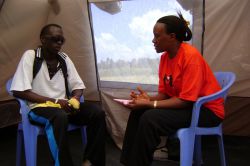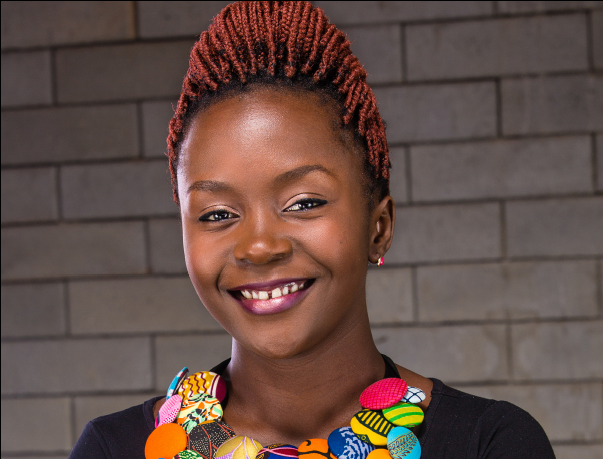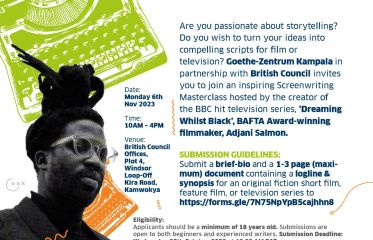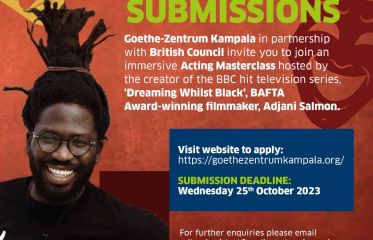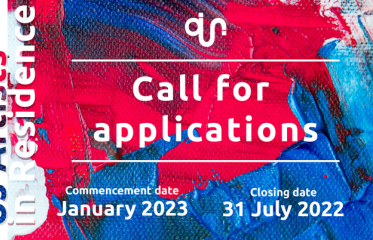I am a
student
institution
career professional
I need help with
Career Selection & Planning
Find your best-fit career, stream, course or college through advanced assessments and expert guidance.
college applications
Get admits from your dream colleges through end-to-end applications guidance for overseas and liberal arts universities.
I am interested in
Career Development Programs
State-of-the-art career assessments, expert guidance, and more to help students plan their career paths.
Career Advancement Programs
Expert-led MUN training programs, inspirational career talks and more to help students get that added edge.
I am interested in
Getting Certified (ICCC)
Become an International Certified Career Coach through a multi-level credentialing program by Mindler & CDA (USA).
Partnering with Mindler
Expand and grow your career counselling practice by leveraging the full force of Mindler’s career guidance platform.
Ready to discover your perfect career?
Enter your email id to take the Orientation Style test for free.
CAREER COUNSELLING PROGRAMS
Class 8-9
Stream & Subject SelectionAdvanced assessment & personalised guidance to help you select the perfect stream and subjects that align you to the right careers.
Class 10-12
Career Selection & PlanningExpert guidance & 5-dimensional assessment to help you discover your perfect career and choose the right course and college.
Graduates
Career Selection & Development5-dimensional assessment & superior guidance to help you discover your perfect career and choose the best next step.
Thank you for contacting us!
One of our team members will respond in 2 working days to resolve your query. If your query is urgent, you can alternatively call our career helpline.
Ready to pave your way to your dream college?
Leave your details below and we will get in touch shortly.
COLLEGE APPLICATION PROGRAMS
Overseas Application
End-to-end overseas admissions guidance to help you build the perfect applications for your target universities.
Liberal Arts Application
Comprehensive guidance and personalised application development for admissions to Liberal Arts programs.
Thank you for contacting us!
One of our team members will respond in 2 working days to resolve your query. If your query is urgent, you can alternatively call our career helpline.
Ready to give students the best of career guidance?
Leave your details below and we will get in touch shortly.
Career Development Programs
Career Development &
Planning Ecosystem
State-of-the-art assessment & end-to-end career guidance to help students discover their perfect career.
Thank you for contacting us!
One of our team members will respond in 2 working days to resolve your query. If your query is urgent, you can alternatively call our career helpline.
Ready to give your students the added edge?
Leave your details below and we will get in touch shortly.
Career Advancement Programs
MUN Training Program
Expert-led training and comprehensive guidance sessions to help students excel at MUN conferences.
Mindler Talks
Career awareness and inspirational talks for students with professionals who have achieved success in their fields.
Thank you for contacting us!
One of our team members will respond in 2 working days to resolve your query. If your query is urgent, you can alternatively call our career helpline.
Ready to upgrade your career counselling skills?
Enter your email id to start your ICCC application.
Getting Certified (ICCC)
International Certified
Career Coach (ICCC)
A 3-month program with emphasis on global practices, experiential learning & career guidance tools.
Thank you for contacting us!
One of our team members will respond in 2 working days to resolve your query. If your query is urgent, you can alternatively call our career helpline.
Ready to grow as a counsellor?
Leave your details below and we will get in touch shortly.
Partnering with Mindler
Mindler Partner Program
World-class career assessment platform & tools to help you scale up your career counselling practice.
Thank you for contacting us!
One of our team members will respond in 2 working days to resolve your query. If your query is urgent, you can alternatively call our career helpline.
Breaking News
- Ministry of Education and Sports Azerbaijan Government Scholarships For 2025-2026 Academic Year ...Read More
- Government Sponsorship Undergraduate Admission Lists 2025-26 for Makerere University ...Read More
- Ministry of Education And Sports: Egyptian Government Scholarships 2025-2026 Academic Year ...Read More
- Ground Breaker Full Scholarship for girls to study Software Engineering 2025 July Intake ...Read More
- Tony Elumelu Foundation Entrepreneurship Programme (TEEP) 2025 for young African Entrepreneurs ...Read More
- DESIGNING FUTURES 2050 International Design Competition 2025 (€15,000 prize) ...Read More
- Ground Breaker Full time Scholarship for girls to study Software Engineering 2025 Intake ...Read More
- Ministry of Education And Sports Algerian Vocational Training Scholarships for 2024-2025 AY ...Read More
- Ministry of Education and Sports Advert for the Algerian Government Scholarships for 2024-2025 ...Read More
- Uganda Dev Summit 2024 Live Stream ...Read More
Actor
Actors express ideas and portray characters in theater, film, television, and other performing arts media. They also work at theme parks or other live events. They interpret a writer’s script to entertain or inform an audience.
Add to FavouritesDaily Tasks
Actors typically do the following:
1. Read scripts and meet with agents and other professionals before accepting a role
2. Audition in front of directors and producers
3. Research their character’s personal traits and circumstances to portray them more authentically to an audience
4. Memorize their lines
5. Rehearse their lines and performance, including movement on stage or in front of the camera, with other actors
6. Discuss their role with the director and other actors to improve the overall performance of the show
7. Perform the role, following the director’s directions
Key Knowledge Areas
English Language — Knowledge of the structure and content of the English language including the meaning and spelling of words, rules of composition, and grammar.
Fine Arts — Knowledge of the theory and techniques required to compose, produce, and perform works of music, dance, visual arts, drama, and sculpture.
Psychology — Knowledge of human behavior and performance; individual differences in ability, personality, and interests; learning and motivation; psychological research methods; and the assessment and treatment of behavioral and affective disorders.
Communications and Media — Knowledge of media production, communication, and dissemination techniques and methods. This includes alternative ways to inform and entertain via written, oral, and visual media.
Sociology and Anthropology — Knowledge of group behavior and dynamics, societal trends and influences, human migrations, ethnicity, cultures and their history and origins.
Key Skills
Speaking — Talking to others to convey information effectively.
Active Listening — Giving full attention to what other people are saying, taking time to understand the points being made, asking questions as appropriate, and not interrupting at inappropriate times.
Reading Comprehension — Understanding written sentences and paragraphs in work related documents.
Social Perceptiveness — Being aware of others' reactions and understanding why they react as they do.
Critical Thinking — Using logic and reasoning to identify the strengths and weaknesses of alternative solutions, conclusions or approaches to problems.
Monitoring — Monitoring/Assessing performance of yourself, other individuals, or organizations to make improvements or take corrective action.
Coordination — Adjusting actions in relation to others' actions.
Judgment and Decision Making — Considering the relative costs and benefits of potential actions to choose the most appropriate one.
Time Management — Managing one's own time and the time of others. Active Learning — Understanding the implications of new information for both current and future problem-solving and decision-making.
Writing — Communicating effectively in writing as appropriate for the needs of the audience.
-
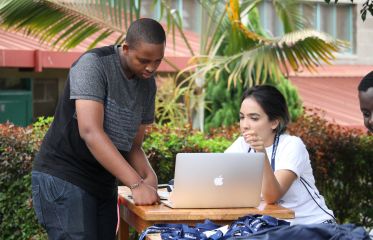 Yale Young African Scholars Program 2024 for African Secondary School Students
An intensive academic and enrichment program designed for African secondary school students
Yale Young African Scholars Program 2024 for African Secondary School Students
An intensive academic and enrichment program designed for African secondary school students
Know more -
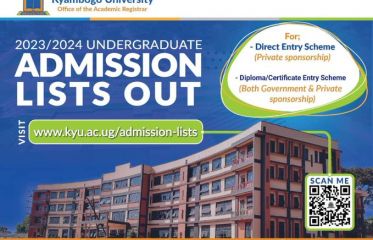 Kyambogo University Releases Private Admissions List for Academic Year 2023-2024
Provisional Admissions Lists at Kyambogo University
Kyambogo University Releases Private Admissions List for Academic Year 2023-2024
Provisional Admissions Lists at Kyambogo University
Know more -
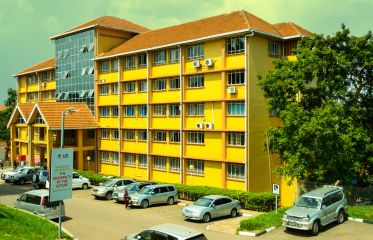 Makerere University and Makerere University Business School Admission Lists for Diploma Holders under Government Sponsorship 2023-24
Diploma Entry Scheme Government Sponsorship List
Makerere University and Makerere University Business School Admission Lists for Diploma Holders under Government Sponsorship 2023-24
Diploma Entry Scheme Government Sponsorship List
Know more -
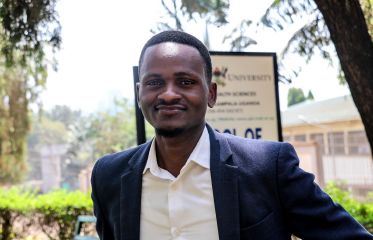 From Working as a Houseboy to Being the Best at Makerere University: Ssembuusi's Story of Overcoming Hardships and Achieving Success
A Story of Persistence amidst grave challenges
From Working as a Houseboy to Being the Best at Makerere University: Ssembuusi's Story of Overcoming Hardships and Achieving Success
A Story of Persistence amidst grave challenges
Know more -
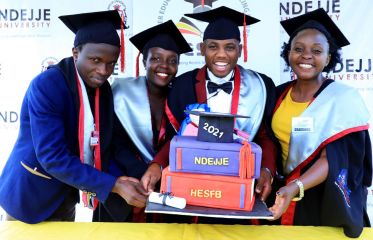 List of the Successful Loan Scheme Beneficiaries (AY2022-23)
Loan Scheme results for 2022-23 Academic Year
List of the Successful Loan Scheme Beneficiaries (AY2022-23)
Loan Scheme results for 2022-23 Academic Year
Know more -
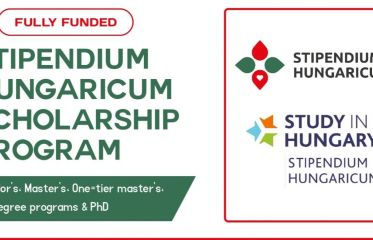 Ministry of Education and Sports Stipendium Hungaricum Scholarship 2023-2024 Academic Year
Study in Hungary on Full Scholarship
Ministry of Education and Sports Stipendium Hungaricum Scholarship 2023-2024 Academic Year
Study in Hungary on Full Scholarship
Know more -
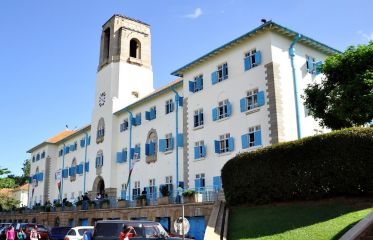 Makerere University Additional Undergraduate Admission Lists 2022-23
Diploma Entry Scheme, Sports Persons Scheme, Disability Scheme and Supplementary Private Admissions Lists
Makerere University Additional Undergraduate Admission Lists 2022-23
Diploma Entry Scheme, Sports Persons Scheme, Disability Scheme and Supplementary Private Admissions Lists
Know more -
Call for Applications for Internship support from Raising Gabdho Foundation The internship program will contribute facilitation to those who have acquired internships but need support to complete the internship program
Know more -
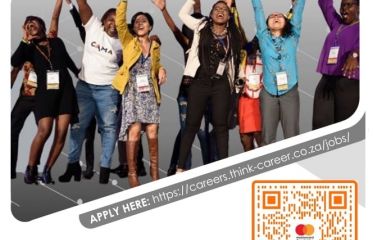 Graduate Internship Program at Mastercard Foundation 2022
The Mastercard Foundation is recruiting the next cohort of young graduates across Africa
Graduate Internship Program at Mastercard Foundation 2022
The Mastercard Foundation is recruiting the next cohort of young graduates across Africa
Know more -
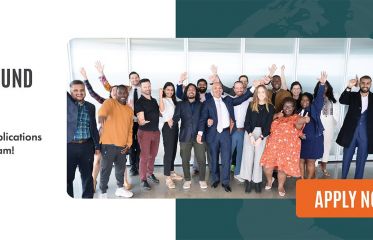 The Global Good Fund Fellowship 2023
Become a Global Good Fund Fellow
The Global Good Fund Fellowship 2023
Become a Global Good Fund Fellow
Know more -
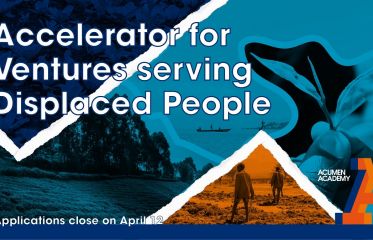 Accelerator for Ventures Serving Displaced People 2022
Refine and develop a scalable business model that advances sustainable livelihoods for forcibly displaced populations in East Africa
Accelerator for Ventures Serving Displaced People 2022
Refine and develop a scalable business model that advances sustainable livelihoods for forcibly displaced populations in East Africa
Know more -
United Nations Sustainable Development Goals Young Leaders Initiative 2022 Calling on young change-makers from all over the world
Know more -
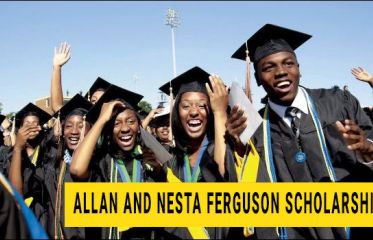 Allan and Nesta Ferguson Scholarships to Study in UK
Scholarships for African Nationals and Residents in Africa to undertake a taught masters course at SOAS
Allan and Nesta Ferguson Scholarships to Study in UK
Scholarships for African Nationals and Residents in Africa to undertake a taught masters course at SOAS
Know more -
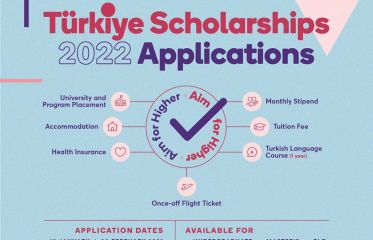 Türkiye Scholarships 2022 Applications
Full Scholarship to Study In Turkey
Türkiye Scholarships 2022 Applications
Full Scholarship to Study In Turkey
Know more -
 Aga Khan Foundation International Scholarship Programme 2022-2023 for Postgraduate Studies Abroad
Scholarship for outstanding students from selected developing countries
Aga Khan Foundation International Scholarship Programme 2022-2023 for Postgraduate Studies Abroad
Scholarship for outstanding students from selected developing countries
Know more -
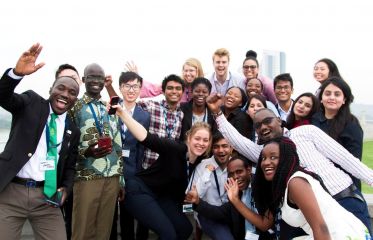 Applications for Queen Elizabeth Commonwealth Scholarships now open for 2022 intake
Full Scholarship to study in a common wealth country
Applications for Queen Elizabeth Commonwealth Scholarships now open for 2022 intake
Full Scholarship to study in a common wealth country
Know more -
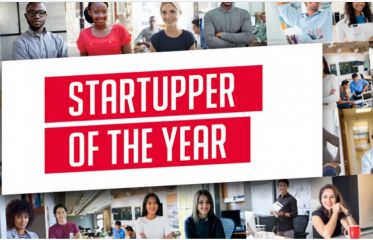 Startupper Challenge of the year by TotalEnergies 2021
Great funding opportunity for young African entrepreneurs between the ages of 18 and 35
Startupper Challenge of the year by TotalEnergies 2021
Great funding opportunity for young African entrepreneurs between the ages of 18 and 35
Know more -
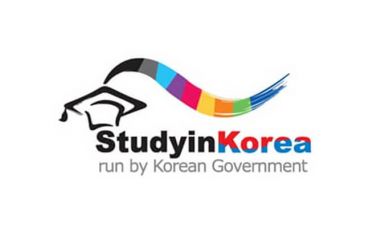 2022 Global Korea Scholarship for Undergraduate Degrees
Study in South Korea on Full Scholarship
2022 Global Korea Scholarship for Undergraduate Degrees
Study in South Korea on Full Scholarship
Know more -
 Makerere University Private (ALEVEL) Admissions, 2020-2021 Cut Off Points
Points needed to join Makerere University and Makerere University Business School on Private
Makerere University Private (ALEVEL) Admissions, 2020-2021 Cut Off Points
Points needed to join Makerere University and Makerere University Business School on Private
Know more -
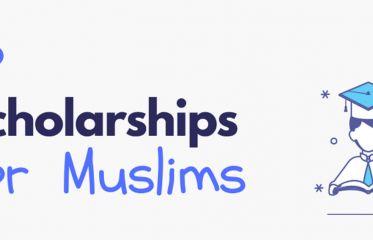 Mufti’s Bursary Scheme 2021-2022 Academic Year at The Islamic Call University College
Tuition Free Scholarship at the Islamic Call University College
Mufti’s Bursary Scheme 2021-2022 Academic Year at The Islamic Call University College
Tuition Free Scholarship at the Islamic Call University College
Know more -
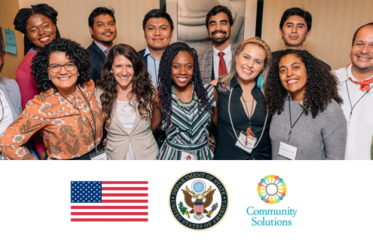 IREX Community Solutions Program 2022-2023 for Community Youth Leaders (Fully Funded to the USA)
A year-long professional leadership development program for people who are working to improve their communities
IREX Community Solutions Program 2022-2023 for Community Youth Leaders (Fully Funded to the USA)
A year-long professional leadership development program for people who are working to improve their communities
Know more -
 Ministry of Education and Sports United Kingdom Common Wealth Scholarship Scheme 2022-2023
Full Scholarship to study in United Kingdom
Ministry of Education and Sports United Kingdom Common Wealth Scholarship Scheme 2022-2023
Full Scholarship to study in United Kingdom
Know more -
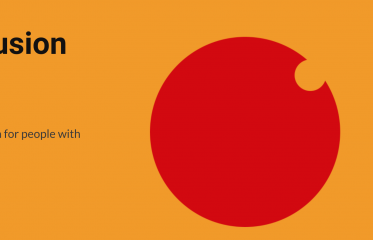 ICT 4 Inclusion Challenge Africa edition 2021
Shaping inclusive education for people with disabilities in Africa
ICT 4 Inclusion Challenge Africa edition 2021
Shaping inclusive education for people with disabilities in Africa
Know more -
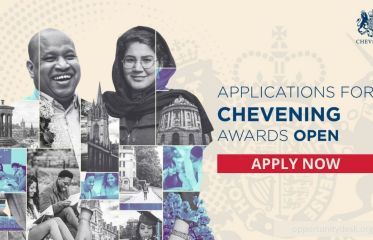 Apply:Chevening UK Government Scholarship to Study in the UK 2022-2023 (Fully Funded)
Fully Funded Scholarships to undertake any master's course at any UK University
Apply:Chevening UK Government Scholarship to Study in the UK 2022-2023 (Fully Funded)
Fully Funded Scholarships to undertake any master's course at any UK University
Know more -
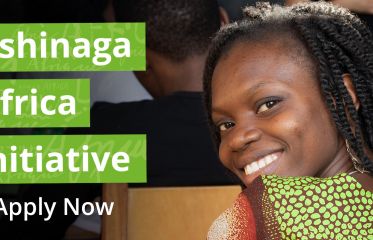 Ashinaga Africa Initiative 2022 (Fully funded to study abroad)
Full Scholarship to study abroad
Ashinaga Africa Initiative 2022 (Fully funded to study abroad)
Full Scholarship to study abroad
Know more -
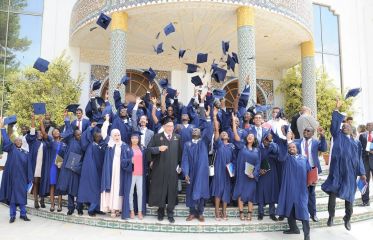 Pan African University 2021-2022 (Masters and Phd) Scholarships for Young Africans (Fully Funded)
Study at the Prestigious Pan African University
Pan African University 2021-2022 (Masters and Phd) Scholarships for Young Africans (Fully Funded)
Study at the Prestigious Pan African University
Know more -
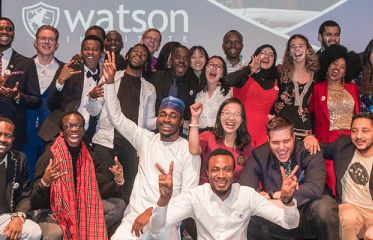 Western Union Foundation Accelerator and Fellowship 2021 for young entrepreneurs (Fully Funded)
Fully funded fellowship for budding entrepreneurs
Western Union Foundation Accelerator and Fellowship 2021 for young entrepreneurs (Fully Funded)
Fully funded fellowship for budding entrepreneurs
Know more -
 Absa Fellowship Programme for 2021 Intake
Full Scholarship to Study in South Africa on Full Scholarship
Absa Fellowship Programme for 2021 Intake
Full Scholarship to Study in South Africa on Full Scholarship
Know more -
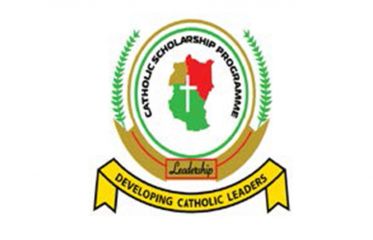 The Catholic Scholarship Programme 2021-2022
Apostolic and Leadership Scholarship
The Catholic Scholarship Programme 2021-2022
Apostolic and Leadership Scholarship
Know more -
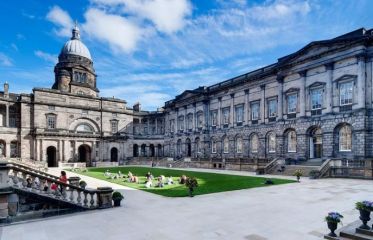 MasterCard Foundation Fully Funded Online Learning Scholarship to study at University of Edinburgh
Online Learning Scholarship to study your Masters Degree
MasterCard Foundation Fully Funded Online Learning Scholarship to study at University of Edinburgh
Online Learning Scholarship to study your Masters Degree
Know more -
 Study in Turkey on a Full Scholarship for the 2021 Intake
Turkish Government Scholarships for 2021 intake
Study in Turkey on a Full Scholarship for the 2021 Intake
Turkish Government Scholarships for 2021 intake
Know more -
 Wageningen University Africa Scholarship Program 2021-2022 for African Students
Study your Masters in Netherlands on full scholarship
Wageningen University Africa Scholarship Program 2021-2022 for African Students
Study your Masters in Netherlands on full scholarship
Know more -
 Mastercard Foundation Scholars Program 2020-2021 at Kwame Nkurumah University (Fully Funded)
Fully Funded Scholarship at Kwame Nkurumah University of Science and Technology
Mastercard Foundation Scholars Program 2020-2021 at Kwame Nkurumah University (Fully Funded)
Fully Funded Scholarship at Kwame Nkurumah University of Science and Technology
Know more -
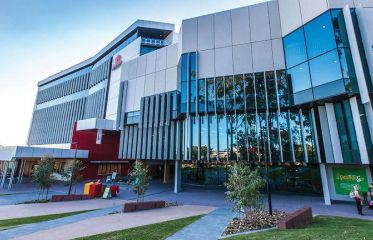 International Undergraduate Excellence Scholarships at Griffith University in Australia
Study your undergraduate at a world re-known University
International Undergraduate Excellence Scholarships at Griffith University in Australia
Study your undergraduate at a world re-known University
Know more -
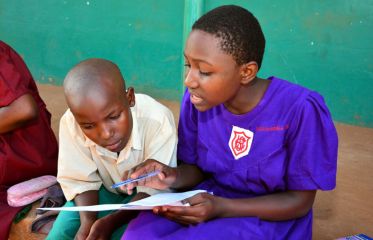 Gayaza High Stretches hand for neighbouring UPE School
Students being a conduit of blessing to their comm
Gayaza High Stretches hand for neighbouring UPE School
Students being a conduit of blessing to their comm
Know more -
 Makerere among world’s top 50 for development studies
The Pinnacle of Intellectualism continues to shine
Makerere among world’s top 50 for development studies
The Pinnacle of Intellectualism continues to shine
Know more -
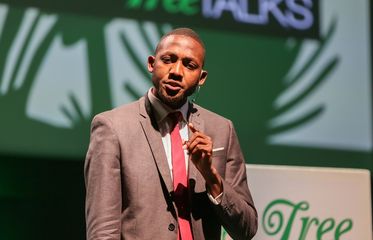 Ugandan youth wins Commonwealth award
The youth as the major economy drivers
Ugandan youth wins Commonwealth award
The youth as the major economy drivers
Know more
Draw Inspiration from time tested individuals
-
 Meet Patriq Nkakalukanyi, An Actor who started his career in senior six
Meet Patriq Nkakalukanyi, An Actor who started his career in senior six
Watch Interview -
 Phillip Luswata - A Time Tested Actor and Director
Phillip Luswata - A Time Tested Actor and Director
Watch Interview -
 Simon Base Kalema - Ugandan Singer Who Turned Actor
Simon Base Kalema - Ugandan Singer Who Turned Actor
Watch Interview -
 Rhonnie A Nkalubo - An ever evolving Filmmaker in Uganda
Rhonnie A Nkalubo - An ever evolving Filmmaker in Uganda
Watch Interview -
 Nisha Kalema - Ugandan Multi-Award Winning Actress, Producer and Writer
Nisha Kalema - Ugandan Multi-Award Winning Actress, Producer and Writer
Watch Interview -
 Ssekimpi Johnmary - A Passionate Ugandan Actor
Ssekimpi Johnmary - A Passionate Ugandan Actor
Watch Interview -
 Okuyo Joel Atiku Prynce - Actor, Photographer, Film Maker and Lecturer
Okuyo Joel Atiku Prynce - Actor, Photographer, Film Maker and Lecturer
Watch Interview -
 Diana Kahunde - Celebrated Actress
Diana Kahunde - Celebrated Actress
Watch Interview -
 Raymond Rushabiro - Celebrated Actor
Raymond Rushabiro - Celebrated Actor
Watch Interview -
 Cleopatra Koheirwe - Celebrated Actress
Cleopatra Koheirwe - Celebrated Actress
Watch Interview -
 Eleanor Nabwiso - Actress, Film Producer and Director
Eleanor Nabwiso - Actress, Film Producer and Director
Watch Interview -
 Peter Odeke - International Ugandan film Actor
Peter Odeke - International Ugandan film Actor
Watch Interview -
 Daniel Omara : A Comedian Turned Actor
Daniel Omara : A Comedian Turned Actor
Watch Interview -
 Doreen Mirembe : Actress and producer.
Doreen Mirembe : Actress and producer.
Watch Interview -
 Nana Kagga : A seasoned Ugandan Actress
Nana Kagga : A seasoned Ugandan Actress
Watch Interview -
 Mathew Nabwiso
Mathew Nabwiso
Watch Interview -
 Abby Mukiibi Nkaaga ; An acting beast in Uganda
Abby Mukiibi Nkaaga ; An acting beast in Uganda
Watch Interview -
 Sam Bagenda - Dr Bbosa
Sam Bagenda - Dr Bbosa
Watch Interview -
 Meet Douglas Kasule Benda, a passionate filmmaker, actor, theatre director and drama teacher
Meet Douglas Kasule Benda, a passionate filmmaker, actor, theatre director and drama teacher
Watch Interview
Careers that are in the same career field as Actor
-
 Project Officer
Know more
Project Officer
Know more -
 Public relations manager
Know more
Public relations manager
Know more -
 Youth worker
Know more
Youth worker
Know more -
 Clergy
Know more
Clergy
Know more -
 Mental Health and Substance Abuse Social Worker
Know more
Mental Health and Substance Abuse Social Worker
Know more -
 Rehabiliitation Counsellor
Know more
Rehabiliitation Counsellor
Know more -
 Social and Community Service Manager
Know more
Social and Community Service Manager
Know more -
 Actor
Know more
Actor
Know more -
 Athlete and Sports Competitor
Know more
Athlete and Sports Competitor
Know more -
 Musician and Singer
Know more
Musician and Singer
Know more -
 Funeral Service Manager
Know more
Funeral Service Manager
Know more -
 Social and Community Service Manager
Know more
Social and Community Service Manager
Know more -
 Credit Counselor
Know more
Credit Counselor
Know more -
 Loan Counselor
Know more
Loan Counselor
Know more -
 Survey Researcher
Know more
Survey Researcher
Know more -
 Clinical, Counseling, and School Psychologist
Know more
Clinical, Counseling, and School Psychologist
Know more -
 School Psychologist
Know more
School Psychologist
Know more -
 Clinical Psychologist
Know more
Clinical Psychologist
Know more -
 Counseling Psychologist
Know more
Counseling Psychologist
Know more -
 Industrial-Organizational Psychologist
Know more
Industrial-Organizational Psychologist
Know more -
 Remote Sensing Technician
Know more
Remote Sensing Technician
Know more -
 Educational, Guidance, School, and Vocational Counselor
Know more
Educational, Guidance, School, and Vocational Counselor
Know more -
 Marriage and Family Therapist
Know more
Marriage and Family Therapist
Know more -
 Mental Health Counselor
Know more
Mental Health Counselor
Know more -
 Rehabilitation Counselor
Know more
Rehabilitation Counselor
Know more -
 Child, Family, and School Social Worker
Know more
Child, Family, and School Social Worker
Know more -
 Mental Health and Substance Abuse Social Worker
Know more
Mental Health and Substance Abuse Social Worker
Know more -
 Probation Officers and Correctional Treatment Specialist
Know more
Probation Officers and Correctional Treatment Specialist
Know more -
 Social and Human Service Assistant
Know more
Social and Human Service Assistant
Know more -
 Community Health Worker
Know more
Community Health Worker
Know more -
 Director, Religious Activities and Education
Know more
Director, Religious Activities and Education
Know more -
 Physical Therapist Aide
Know more
Physical Therapist Aide
Know more -
 Slot Supervisor
Know more
Slot Supervisor
Know more -
 First-Line Supervisors of Personal Service Worker
Know more
First-Line Supervisors of Personal Service Worker
Know more -
 Costume Attendant
Know more
Costume Attendant
Know more -
 Embalmer
Know more
Embalmer
Know more -
 Funeral Attendant
Know more
Funeral Attendant
Know more -
 Mortician, Undertaker, and Funeral Director
Know more
Mortician, Undertaker, and Funeral Director
Know more -
 Barber
Know more
Barber
Know more -
 Makeup Artist, Theatrical and Performance
Know more
Makeup Artist, Theatrical and Performance
Know more -
 Manicurist and Pedicurist
Know more
Manicurist and Pedicurist
Know more -
 Shampooer
Know more
Shampooer
Know more -
 Travel Guide
Know more
Travel Guide
Know more -
 Childcare Worker
Know more
Childcare Worker
Know more -
 Nanny
Know more
Nanny
Know more -
 Personal Care Aide
Know more
Personal Care Aide
Know more -
 Recreation Worker
Know more
Recreation Worker
Know more -
 Residential Advisor
Know more
Residential Advisor
Know more -
 Print Binding and Finishing Worker
Know more
Print Binding and Finishing Worker
Know more -
 Laundry and Dry-Cleaning Worker
Know more
Laundry and Dry-Cleaning Worker
Know more -
 Sewer, Hand
Know more
Sewer, Hand
Know more
Online Training in Human and Social Services
Trending Opportunities
Latest Jobs Corner
-
Teller (No Experience Jobs) Jobs – Insta Remit
Posted: Posted Tue, 07 Oct 2025 15:53:06 +0000 -
Operations Team Leader – AI Jobs – Islamic Development Bank (IsDB)
Posted: Posted Tue, 07 Oct 2025 15:37:57 +0000 -
Finance Officer NGO Jobs – ACTED Uganda
Posted: Posted Tue, 07 Oct 2025 15:22:39 +0000 -
Fresher Purchasing Officer Jobs – Kyosk Digital Services
Posted: Posted Tue, 07 Oct 2025 15:07:26 +0000 -
Several Fresher Jobs – Consultant, Sales Jobs – Stanbic Bank
Posted: Posted Tue, 07 Oct 2025 14:52:12 +0000 -
Pharmacist Jobs – Mildmay Hospital
Posted: Posted Tue, 07 Oct 2025 14:37:00 +0000 -
Stores Officer Jobs – Mildmay Hospital
Posted: Posted Tue, 07 Oct 2025 14:21:48 +0000 -
Security Compliance Officer Jobs – Mildmay Hospital
Posted: Posted Tue, 07 Oct 2025 14:06:39 +0000 -
Financial Controller – Operations Management Jobs – Jakana Foods
Posted: Posted Tue, 07 Oct 2025 13:51:28 +0000 -
3 Loans Officer Job Vacancies – Mitooma People’s Development Trust SACCO Limited (MPDT SACCO)
Posted: Posted Tue, 07 Oct 2025 13:36:17 +0000
Advertisement
Trending Opportunities
Advertisement
Popular Careers
-
Civil Engineer
29207 Views -
Actor
23415 Views -
Flight attendant
21362 Views -
Fashion Designer
20036 Views -
Pilot and flight engineer
18381 Views











